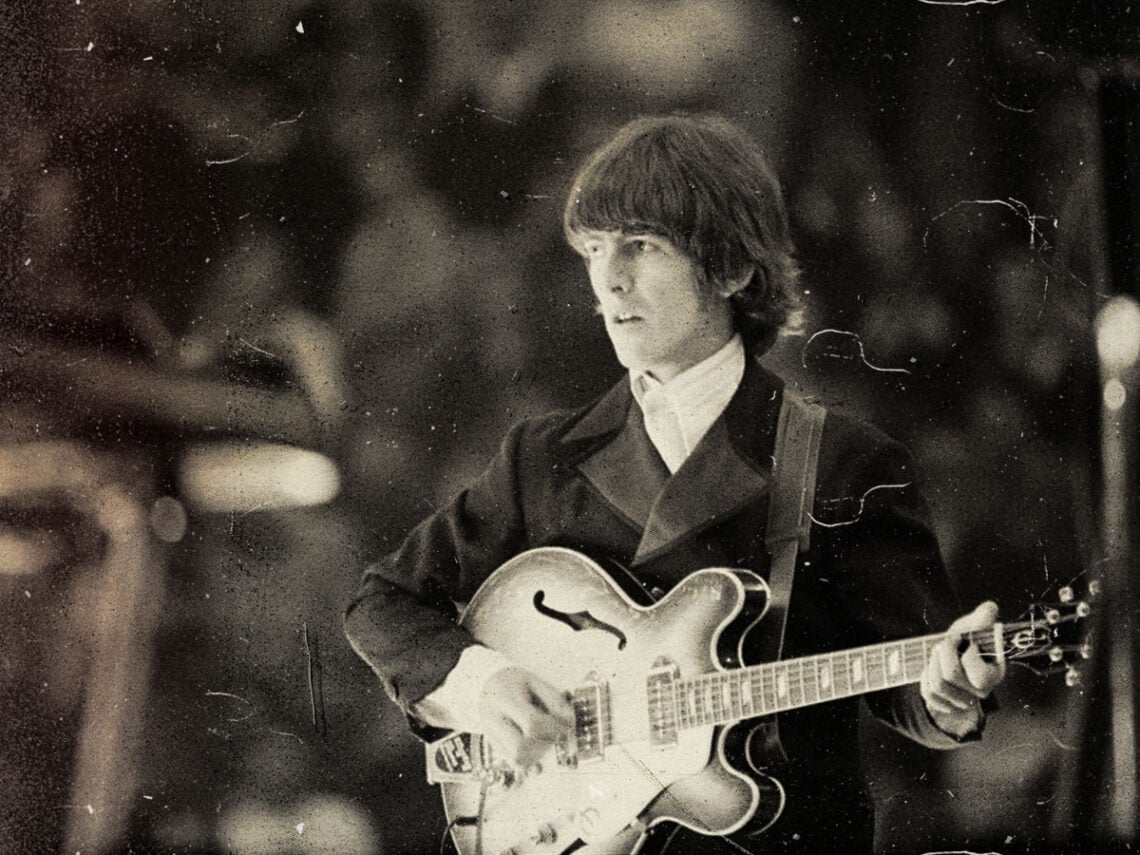In what is now seen as a defining moment, while touring with soul-rock group Delaney and Bonnie in 1969, George Harrison and Eric Clapton were hanging out backstage when Delaney Bramlett handed Harrison a bottleneck slide. Harrison wasn’t much of a blues guy, and The Beatles only had brief flirtations with the genre. Unlike Clapton, Harrison never took much inspiration from classic slide players like Robert Johnson or Charley Patton.
Even though it wasn’t his forte, Harrison became fascinated with slide guitar. For years, Harrison had been trying to find new ways of exploring music that largely didn’t involve the guitar. After training with Ravi Shankar, Harrison began to seriously commit himself to the sitar, composing songs like ‘Within You Without You’ and ‘The Inner Light’. Around the same time, Harrison also composed on keyboards, with songs like ‘Blue Jay Way’ and ‘It’s All Too Much’ coming from these experiments.
Almost begrudgingly, Harrison had to pick the guitar back up as The Beatles continued to record. Eventually, Harrison realised that he would have to fully commit himself to the sitar in order to master it. As he was unwilling to leave his pop songwriting side behind, he ceased his studies with Shankar and returned to the guitar as his main instrument. But Harrison still wanted to explore new sonic territories, which is where the slide became an invaluable resource.
Almost immediately after getting some tips from Bramlett, Harrison began composing slide parts that would soon be fleshed out into full compositions. The most famous of these early slide-infused songs was ‘My Sweet Lord’, Harrison’s first solo number one single. But in that initial burst of creativity came a number of songs that Harrison would complete across his solo career, including ‘I Dig Love’ and ‘Māya Love’. One song he started almost immediately was ‘Woman Don’t You Cry For Me’, which eventually became the opening track from his 1976 album Thirty-Three and 1/3.
Harrison had completed a demo of the song by the time he was working on his true solo debut, All Things Must Pass. He was nearly going to include the song on the album, but the wealth of material eventually pushed ‘Woman Don’t You Cry For Me’ off the final tracklisting. The song continued to float around Harrison’s mind as he continued to record new albums, but it wouldn’t be until 1976’s Thirty-Three and 1/3 that Harrison would finally get around to releasing a studio version of the track.



